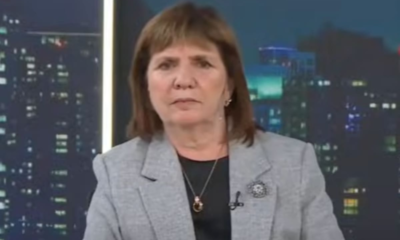INTERNACIONAL
Frente a los aranceles de Estados Unidos, Vietnam estudia reducir parte del comercio con China
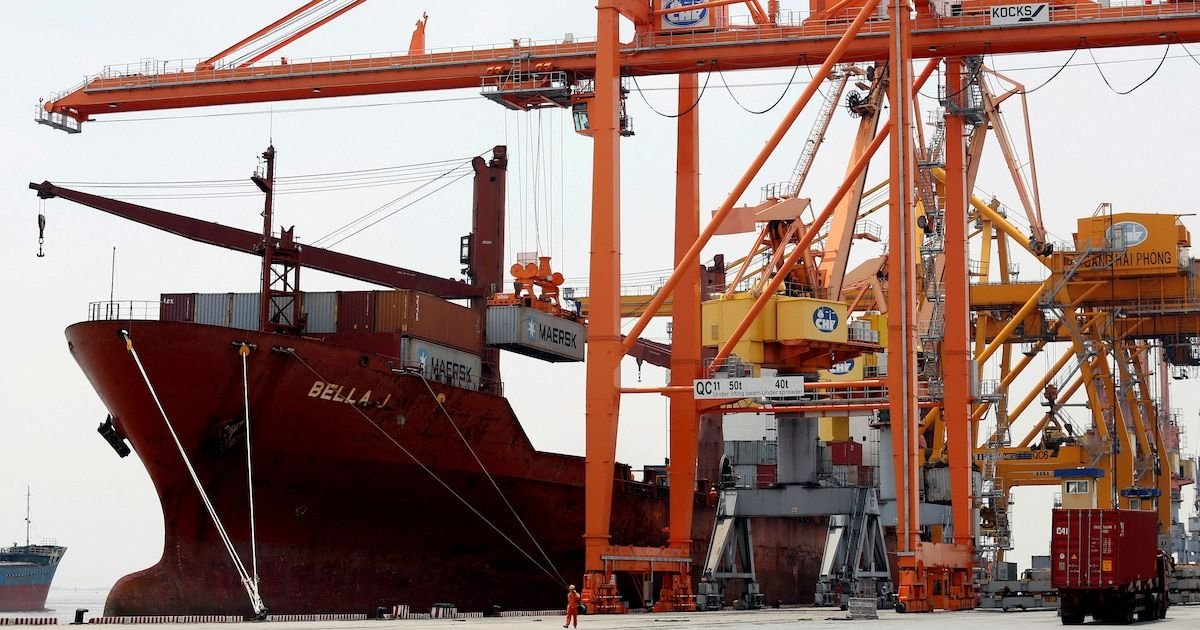
Con la esperanza de evitar los castigos arancelarios de Estados Unidos, Vietnam está dispuesto a tomar medidas enérgicas contra los productos chinos que se envían a Estados Unidos a través de su territorio y endurecerá los controles sobre exportaciones sensibles a China, según una persona familiarizada con el asunto y un documento gubernamental al que tuvo acceso Reuters.
La oferta, cuyos detalles adelantó la agencia de noticias Reuters, surgió mientras altos funcionarios estadounidenses, incluido el influyente asesor comercial de la Casa Blanca Peter Navarro, expresaban su preocupación por los productos chinos enviados a Estados Unidos con etiquetas de “Hecho en Vietnam” que están sujetos a aranceles más bajos.
Vietnam ha ofrecido durante semanas incentivos que esperaba persuadieran al gobierno del presidente de EEUU, Donald Trump, a considerar benignamente su enorme superávit comercial con Estados Unidos. Sin embargo, enfrentó un arancel del 46% como parte del ataque “Día de la Liberación” de Trump.
Aunque el arancel ha sido suspendido por 90 días, ambos países acordaron iniciar conversaciones después de que un vice primer ministro vietnamita se reuniera con el representante comercial de Estados Unidos el miércoles.
Vietnam, cuya economía depende de las exportaciones, espera lograr que los aranceles se reduzcan a un rango de 22% a 28%, o incluso menos, según tres personas con conocimiento del asunto.
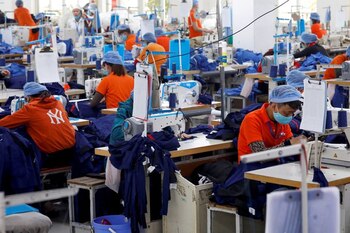
Una de ellas afirmó que los funcionarios estadounidenses habían señalado que ese rango era probable durante una reunión bilateral en marzo.
El Ministerio de Comercio de Vietnam y la oficina del USTR no respondieron a una solicitud de comentarios.
Al anunciar el inicio de las conversaciones comerciales con Estados Unidos el jueves, el gobierno vietnamita declaró en su portal oficial que tomaría medidas contra el “fraude comercial”. No proporcionó detalles.
Desde el primer mandato de Trump, muchas empresas multinacionales han implementado una política de “China más uno”, estableciendo fábricas en Vietnam para reducir su exposición a Beijing.
Vietnam, una nación del sudeste asiático, se encuentra en una situación complicada al intentar preservar el comercio con Estados Unidos, su mayor mercado de exportación y socio en seguridad. Al mismo tiempo, Hanoi no quiere provocar a China, que es una de sus principales fuentes de inversión, además de un vecino con el que ha tenido conflictos sobre límites territoriales en el Mar de China Meridional.
La Oficina de Gobierno de Vietnam, entidad que coordina entre sus ministerios, realizó una reunión de emergencia con expertos en comercio el 3 de abril, horas después de que Trump anunciara los aranceles. El objetivo era abordar las preocupaciones de Washington sobre el supuesto robo de propiedad intelectual y abusos en el transbordo, según una persona informada sobre la reunión.

En la reunión, se instruyó a los funcionarios del Ministerio de Comercio y de aduanas a endurecer los controles y se les dio dos semanas para elaborar un plan para combatir el transbordo ilícito. El plazo podría extenderse hasta finales de abril, añadió la fuente, destacando que Hanoi quería ser cauteloso para no provocar a China.
El transbordo ilícito se refiere al envío de productos de un país a una nación con aranceles más bajos desde un tercer país, al cual se reexporta el producto sin agregarle valor.
La Oficina de Gobierno de Vietnam y el departamento de aduanas no respondieron a una solicitud de comentarios.
Muchos de los productos exportados por Vietnam a Occidente contienen insumos fabricados en China, y también hay empresas chinas que han establecido fábricas en el país para atender a clientes estadounidenses.
En muchos casos, los empleados vietnamitas procesan los productos, que luego son enviados legalmente a Estados Unidos con la etiqueta “Hecho en Vietnam”.
Los datos comerciales oficiales muestran que las exportaciones de Vietnam a Estados Unidos en los últimos años han sido impulsadas por importaciones provenientes de China, con flujos provenientes de Beijing que se corresponden estrechamente con el valor y las fluctuaciones de las exportaciones hacia Washington.
Sin embargo, funcionarios estadounidenses han alegado que China utiliza Vietnam como conducto para evitar aranceles más altos en bienes que no tienen una participación significativa de fabricación vietnamita.

“China utiliza Vietnam para realizar transbordos y evitar los aranceles”, afirmó Navarro en Fox News el 6 de abril, sin proporcionar pruebas.
Una persona familiarizada con el asunto dijo que, en algunos casos, los barcos que transportan bienes fabricados en China permanecían en puertos vietnamitas el tiempo suficiente para obtener documentos que certificaran que los productos eran fabricados en Vietnam antes de partir.
Reuters no pudo establecer de inmediato si la oferta de Vietnam era suficiente para abordar las preocupaciones de Estados Unidos sobre los abusos en el transbordo o si el país podría enfrentar de manera integral el problema.
Un portavoz del Ministerio de Relaciones Exteriores de China dijo en respuesta a una pregunta de Reuters que el comercio entre Beijing y Hanoi “es esencialmente una situación en la que ambos ganan. Creemos que Vietnam tomará una decisión que esté en línea con sus propios intereses a largo plazo y con la situación general de cooperación mutuamente beneficiosa entre China y Vietnam”.
Vietnam también está implementando medidas más estrictas en relación con productos sensibles que transitan por su territorio desde Estados Unidos hacia China.
Hanoi tiene la intención de endurecer los controles sobre las exportaciones de bienes de doble uso, como semiconductores, que pueden ser utilizados tanto con fines civiles como militares, de acuerdo con un borrador de decreto revisado por Reuters.
El decreto, que afirma haber sido preparado a solicitud del Ministerio de Comercio, no tiene fecha, pero incluye una nota explicativa fechada el 4 de abril.
El documento afirmó que importantes socios comerciales habían solicitado a Hanoi “minimizar la posibilidad de que estas tecnologías de origen se transfieran a terceros países sin el consentimiento del país exportador”.
El gobierno de Estados Unidos considera el liderazgo en inteligencia artificial como una prioridad nacional y Washington ha tomado medidas para cortar el acceso de China a los chips fabricados en EEUU más avanzados.
Vietnam ahora planea introducir nuevos procedimientos de declaración y aprobación en el comercio de dichos productos, de acuerdo con la propuesta.
Anteriormente, Hanoi afirmó haber discutido los controles sobre exportaciones de bienes de doble uso con funcionarios estadounidenses durante reuniones en marzo.
Otros gestos relacionados con la tecnología dirigidos a Estados Unidos incluyen la aprobación por parte de Hanoi, bajo condiciones favorables, del servicio de comunicación por satélite Starlink controlado por el multimillonario aliado de Trump, Elon Musk.
Musk pareció confirmar las ambiciones de Starlink en el país cuando publicó nuevamente, el 4 de abril, el contenido de un artículo previo de Reuters que detallaba los planes de la compañía para el despliegue de múltiples estaciones terrestres.
La primacía de Musk en el espacio es vista como una amenaza por Beijing, que se apresura a lanzar satélites en órbita terrestre baja.
Vietnam, un país de tamaño mediano cuyos diplomáticos tienen una larga tradición de equilibrar relaciones con grandes potencias, albergará la visita del líder chino Xi Jinping la próxima semana.
El viaje de Xi probablemente coincida con la aprobación por parte del regulador de aviación de Vietnam de los aviones COMAC de China, según dos personas familiarizadas con el tema.
Esto podría abrir el camino para que las aerolíneas vietnamitas alquilen y compren los aviones chinos, que hasta ahora han tenido dificultades para encontrar compradores extranjeros.
La aprobación seguiría a los anuncios de esta semana por parte de aerolíneas vietnamitas sobre acuerdos para obtener préstamos en EEUU para la compra de aviones Boeing.
(Reuters)
INTERNACIONAL
Schumer, Democrats try to save face, blame GOP for possible government shutdown
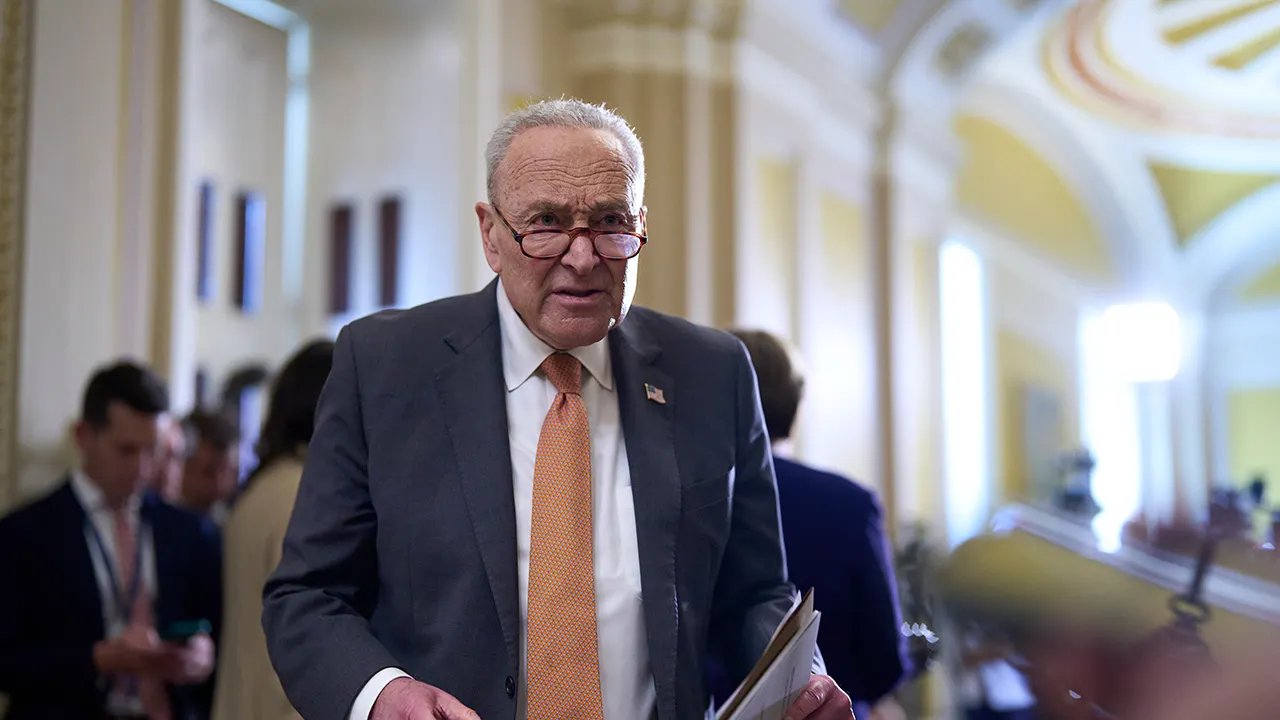
NEWYou can now listen to Fox News articles!
Congressional Democrats are trying to get on the same page and display a unified front after threatening to derail the government funding process.
Senate Minority Leader Chuck Schumer, D-N.Y., and House Minority Leader Hakeem Jeffries, D-N.Y., met behind closed doors Tuesday night, along with the top Democrats in the House and Senate Appropriations Committees, to plot a course forward in the forthcoming government funding fight.
SENATE WEATHERS DEM OPPOSITION, ADVANCES FIRST GOVERNMENT FUNDING BILL
Senate Minority Leader Chuck Schumer, D-N.Y., turns to an aide during a news conference at the Capitol in Washington, D.C., on June 3, 2025. (AP Photo/J. Scott Applewhite)
The meeting came after Democrats in the upper chamber overwhelmingly supported the first government funding bill to hit the Senate floor, one that would fund military construction and Veterans Affairs. Ahead of the vote, Senate Democrats had signaled they may vote against the bill and further obstruct the appropriations process because of highly partisan legislation rammed through the upper chamber by Senate Republicans.
«We all want to pursue a bipartisan, bicameral appropriations process,» Schumer said. «That’s how it’s always been done, successfully, and we believe that, however, the Republicans are making it extremely difficult to do that.»
The meeting just off the Senate floor was meant to get congressional Democrats on board with a messaging plan over the next weeks and months ahead of the Sept. 30 deadline to fund the government.
CONGRESSIONAL REPUBLICANS FACE BRUISING BATTLE TO AVOID GOVERNMENT SHUTDOWN
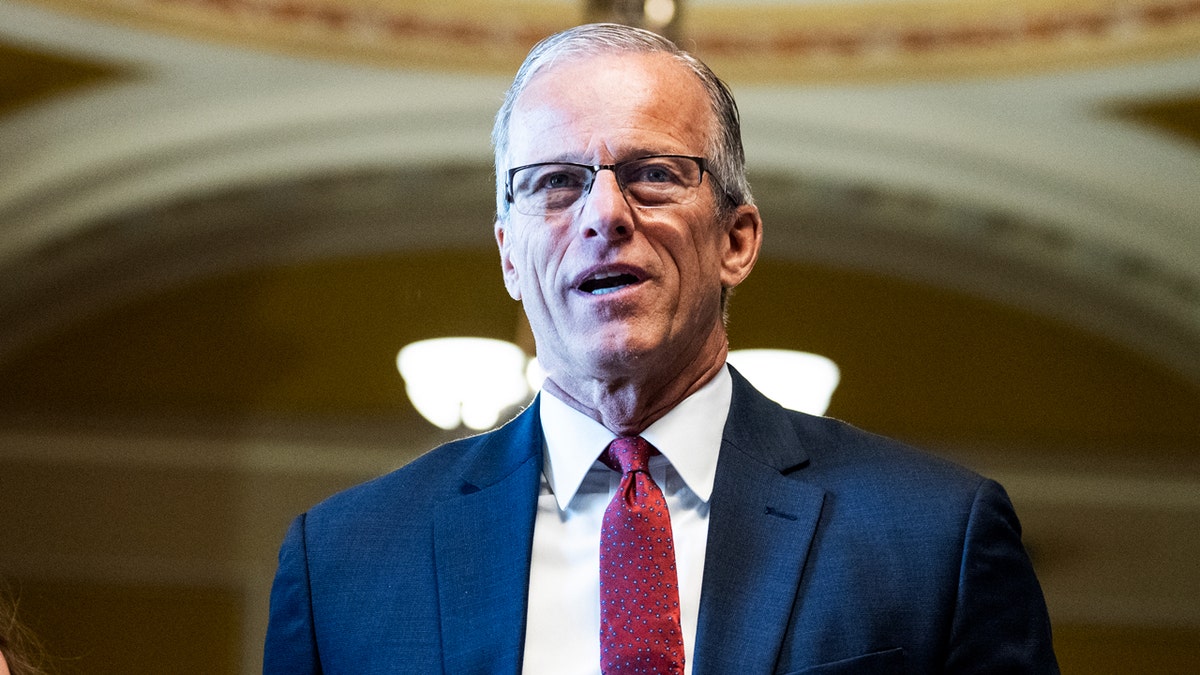
Senate Majority Leader John Thune, R-S.D., is seen after the Senate luncheons in the U.S. Capitol on June 24, 2025. (Tom Williams/CQ-Roll Call, Inc via Getty Images)
It was also likely designed to prevent a repeat of the Democratic debacle in March, when Schumer broke with Jeffries and threatened to shutter the government before ultimately caving and providing Republicans the votes necessary to advance yet another government funding extension, known as a continuing resolution.
Republicans are quick to point out that when Schumer led the upper chamber, none of the House GOP’s spending bills made it to the floor — in Congress, the spending process begins in the lower chamber.
Since taking over earlier this year, Senate Majority Leader John Thune, R-S.D., has committed to returning to regular order, or passing each of the dozen spending bills to fund the government, and trying to get the appropriations process back to normal.
However, it’s a feat that hasn’t been successfully done in Washington since the late 1990s.
«Frankly, I think a lot of us around here think [this] is long overdue,» Thune said.
However, Democrats contend that their trust in Republicans is wearing thin after two major partisan bills, one being President Donald Trump’s «big, beautiful bill,» and the other the president’s $9 billion clawback package, were pushed through the chamber without any Democratic input.
‘BAIT AND SWITCH’: SCHUMER WARNS OF BITTER FUNDING FIGHT OVER GOP CUTS PLAN

Representative Hakeem Jeffries, a Democrat from New York, speaks during a news conference at the U.S. Capitol in Washington, D.C., on Feb. 6, 2025. (Tierney L. Cross/Bloomberg via Getty Images)
Thune argued that Senate Democrats were using the rescissions package to shut down the appropriations process and effectively shut down the government.
In the Senate, most bills that come to the floor require at least 60 votes to smash through the filibuster, meaning that most legislation requires bipartisan support to some extent.
Earlier this year, the House GOP produced a partisan government funding extension that was a tough pill for Senate Democrats to swallow, but they still ultimately opted to vote for it. This time around, they’re demanding more involvement in the process.
CLICK HERE TO GET THE FOX NEWS APP
Jeffries said that congressional Democrats would play ball if the process was «bipartisan and bicameral in nature» and put the onus of a partial government shutdown at the feet of congressional Republicans.
«House Republicans are, in fact, marching us toward a possible government shutdown that will hurt the American people,» he said.
However, House Speaker Mike Johnson, R-La., threw the responsibility on Democrats over whether the government would shutter or stay open come the end of September.
«They’re gaming out how they can shut the government down,» Johnson told Bloomberg Government.
INTERNACIONAL
Ucrania: el presidente Volodimir Zelenski enfrenta críticas y protestas por una nueva ley anticorrupción
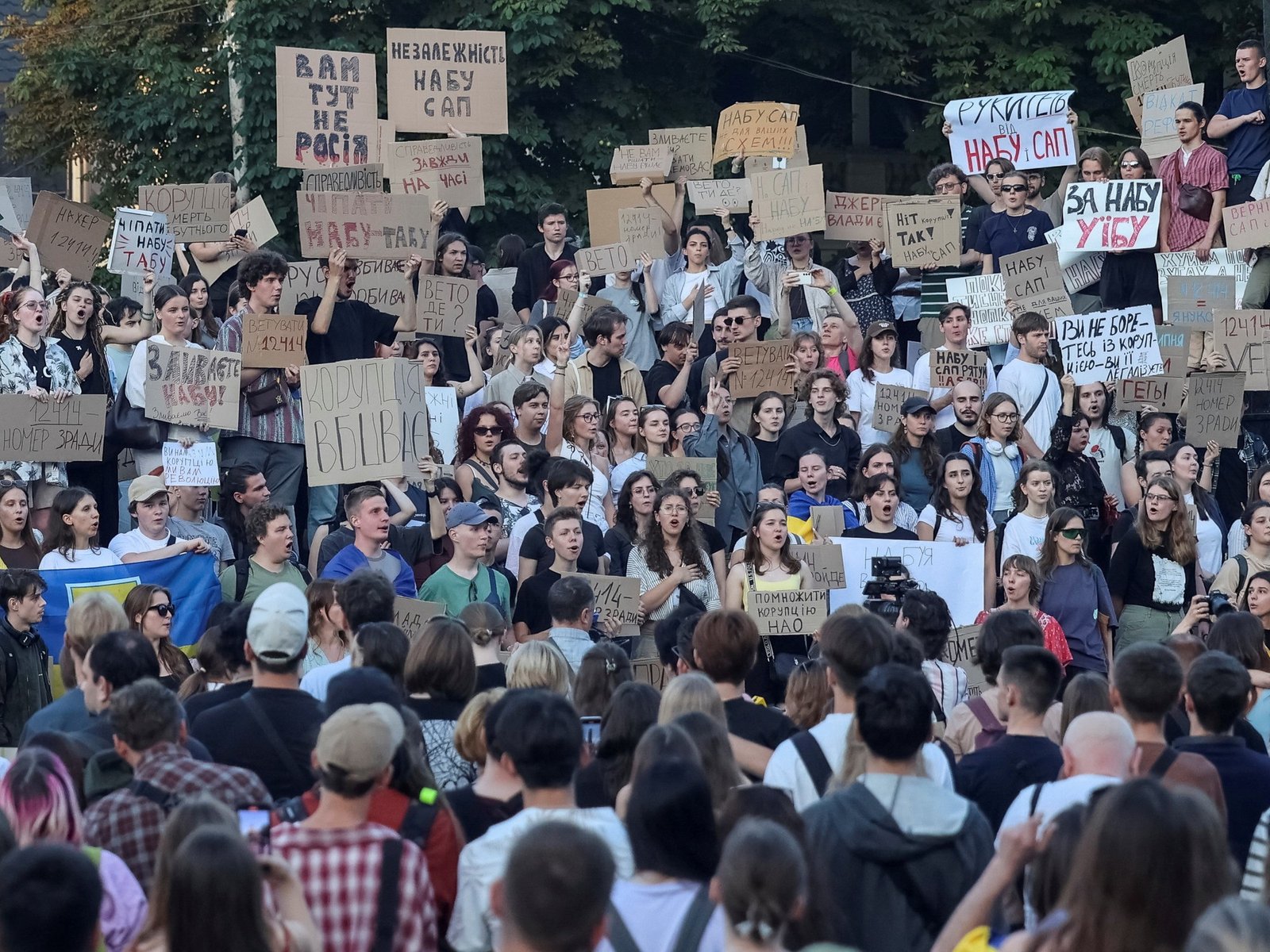
Advertencia de funcionarios de la UE
Negociaciones en Estambul
Ucrania,Volodímir Zelenski,Rusia,Guerra Rusia-Ucrania
INTERNACIONAL
Trump admin official to meet with Israel, Qatar amid push for Gaza ceasefire

NEWYou can now listen to Fox News articles!
Special Envoy Steve Witkoff is expected to meet with Israeli and Qatari officials in Rome on Thursday as the U.S. pushes for a ceasefire deal in Gaza.
Hamas and Israel are engaging in indirect negotiations to end the war that has raged on for nearly two years. However, Witkoff’s itinerary depends on the progress made in the talks. If the parties make enough progress in Rome, Witkoff will reportedly travel to Doha to finalize the deal, according to Axios.
The outlet also reported that sources indicated the meeting in Rome could suggest that a deal is near — possibly just days away.
Earlier this month, Israel agreed to a U.S.-backed, 60-day ceasefire proposal that would lead to the end of the war. This deal includes a phased release of hostages, the withdrawal of Israeli troops from parts of Gaza and talks on ending the conflict, according to Reuters.
Special Envoy Steve Witkoff is expected to meet with Israeli and Qatari officials in Rome on Thursday to secure a deal to end the war in Gaza. (Dawoud Abo Alkas/Anadolu/Kevin Dietsch/Getty Images)
ISRAEL, HAMAS TALKS DRAG AS AID GROUP CHAIR TELLS UN TO STOP ACTING LIKE THE ‘MAFIA’
«My representatives had a long and productive meeting with the Israelis today on Gaza. Israel has agreed to the necessary conditions to finalize the 60 Day CEASEFIRE, during which time we will work with all parties to end the war. The Qataris and Egyptians, who have worked very hard to help bring peace, will deliver this final proposal. I hope, for the good of the Middle East, that Hamas takes this deal because it will not get better — IT WILL ONLY GET WORSE,» President Donald Trump wrote on Truth Social on July 1.
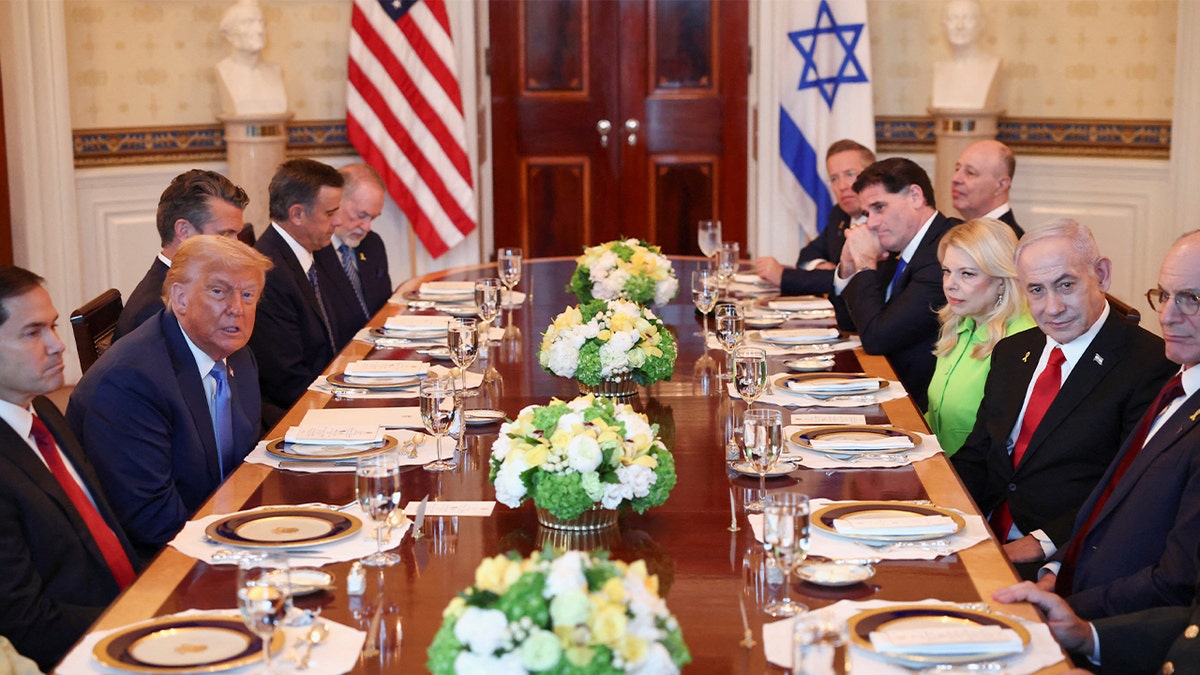
President Donald Trump holds a bilateral dinner with Israeli Prime Minister Benjamin Netanyahu, with Defense Secretary Pete Hegseth and Secretary of State Marco Rubio in attendance, at the White House in Washington, D.C., July 7, 2025. (REUTERS/Kevin Lamarque)
ISRAEL ACCEPTS TRUMP-LED CEASEFIRE PLAN THAT COULD END GAZA WAR WITHIN 60 DAYS
Trump appeared optimistic about the possibility of Israel and Hamas reaching a deal to end the war. On July 16, while signing the HALT Fentanyl Act, Trump thanked Witkoff, praising him for doing «a fantastic job» and said that there was «some good news on Gaza,» though he did not elaborate.
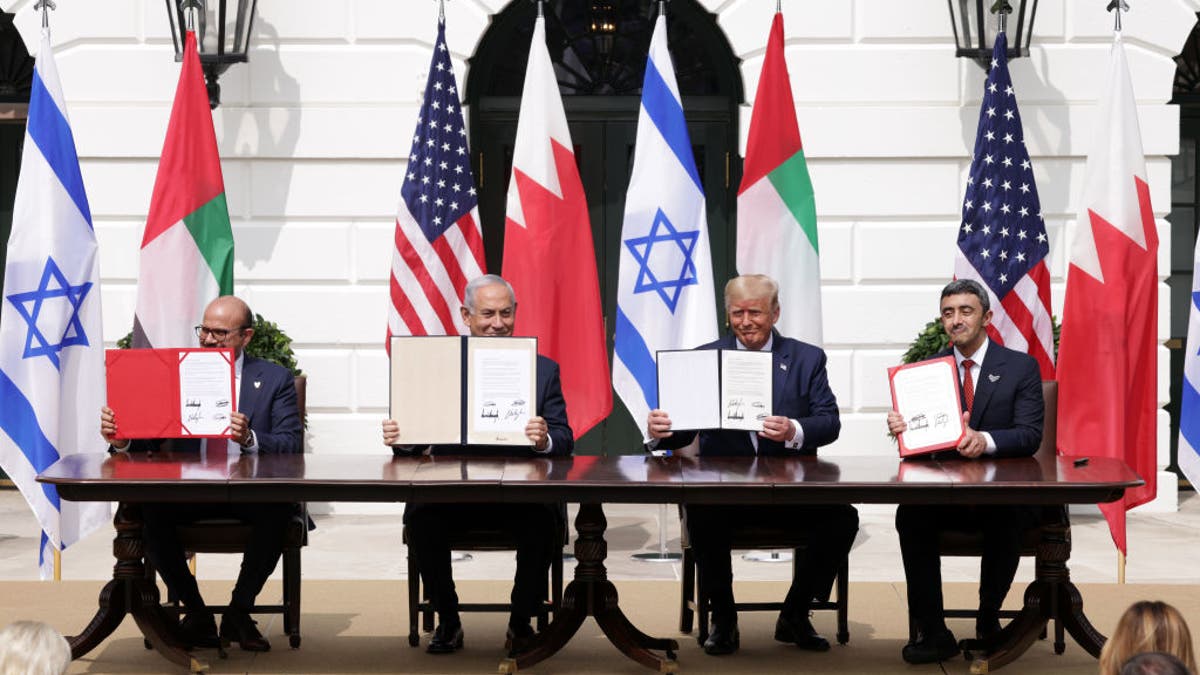
From left to right, Foreign Affairs Minister of Bahrain Abdullatif bin Rashid Al Zayani, Prime Minister of Israel Benjamin Netanyahu, President Donald Trump and Foreign Affairs Minister of the United Arab Emirates Abdullah bin Zayed bin Sultan Al Nahyan participate in the signing ceremony of the Abraham Accords on the South Lawn of the White House on Sept. 15, 2020, in Washington, D.C. (Photo by Alex Wong/Getty Images)
TRUMP PRESSURES ISRAEL TO END GAZA CONFLICT AS HE EYES ABRAHAM ACCORDS EXPANSION
If Trump can secure an end to the war, it could mean an expansion of the Abraham Accords, one of the signature efforts of Trump’s first administration, which saw Israel sign normalization agreements with the United Arab Emirates, Bahrain, Morocco and Sudan. However, Trump has yet to detail which countries would be added.
Israeli Minister of Foreign Affairs Gideon Sa’ar said on June 30 that Israel was «serious» about seeking an end to the conflict. He added that Jerusalem has an interest in «countries, such as Syria and Lebanon, our neighbors, to the circle of peace and normalization.»
CLICK HERE TO GET THE FOX NEWS APP
Fox News Digital’s Greg Wehner and Caitlin McFall contributed to this report.

 POLITICA3 días ago
POLITICA3 días agoExpulsada del Gobierno, Victoria Villarruel empieza a tomar distancia, pero no tiene proyecto político para este año

 POLITICA3 días ago
POLITICA3 días agoLa CGT evalúa adelantar a octubre el recambio de sus autoridades y define una movilización contra Milei

 POLITICA2 días ago
POLITICA2 días ago🗳️ El chamuyo de las elecciones en la Provincia: se postulan, pero no a asumen














